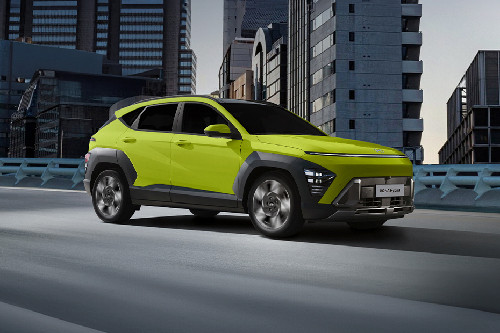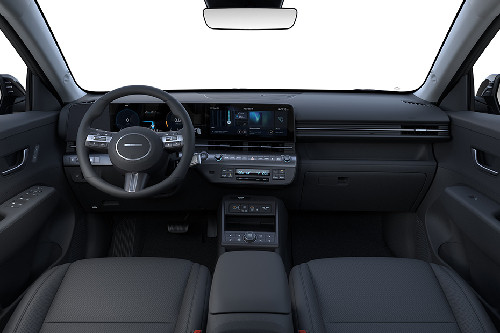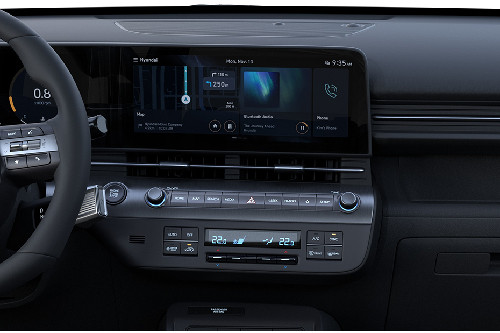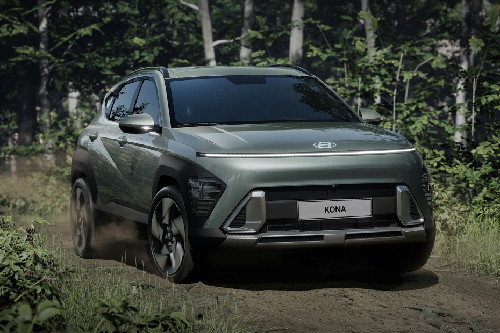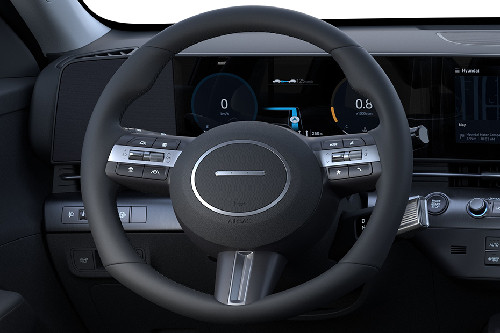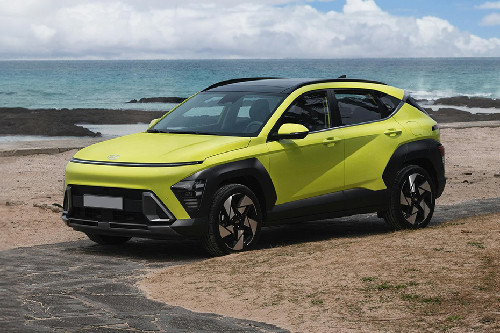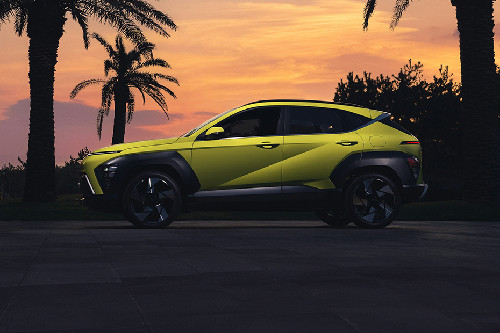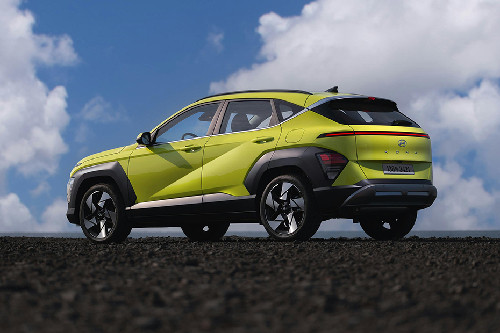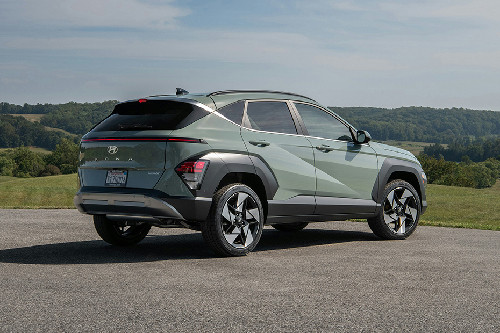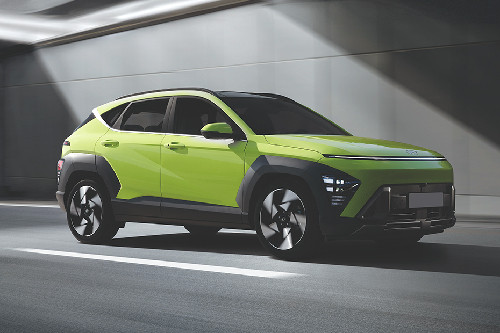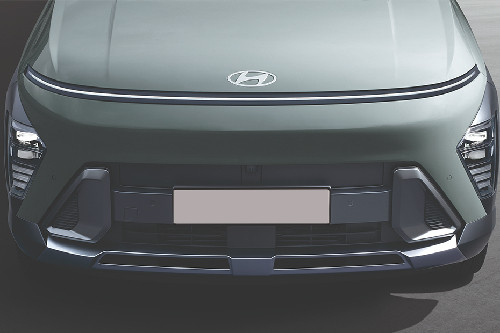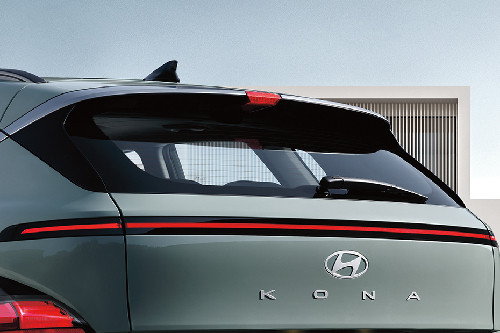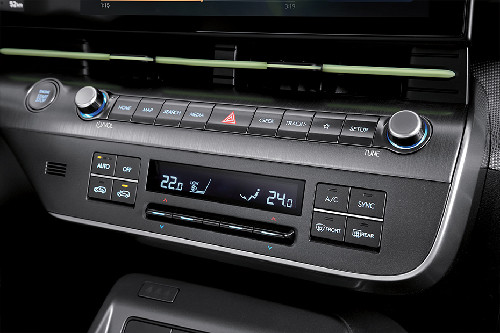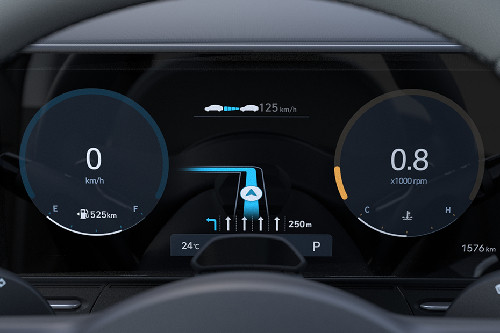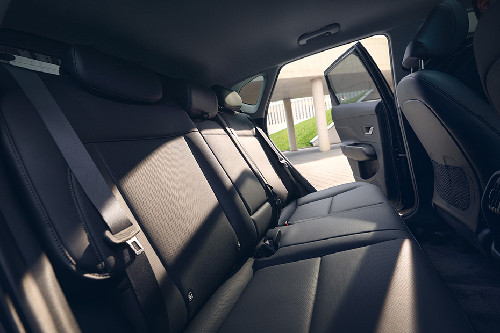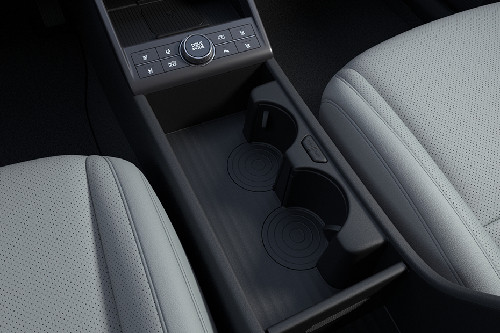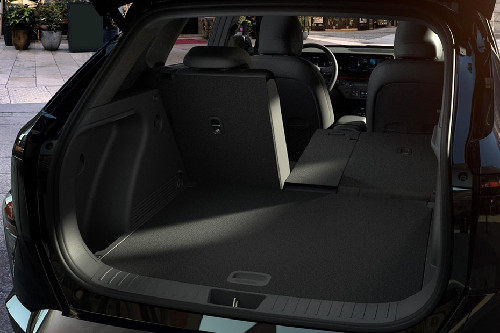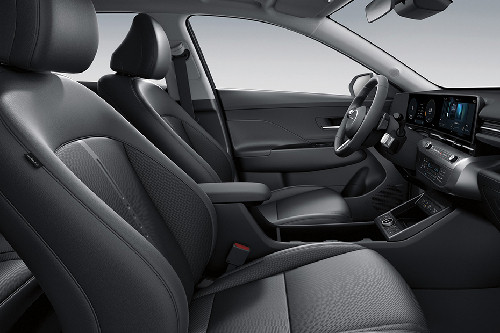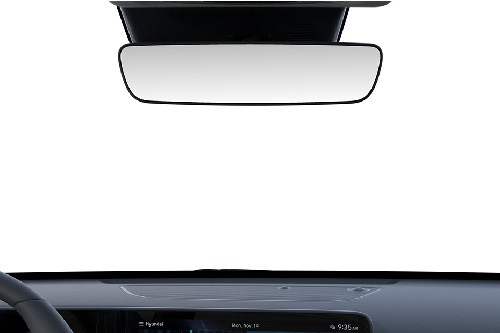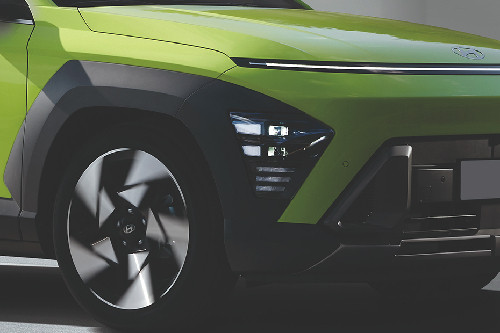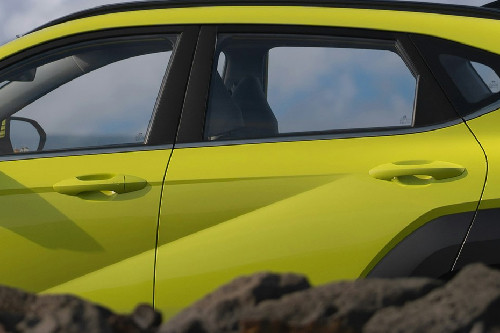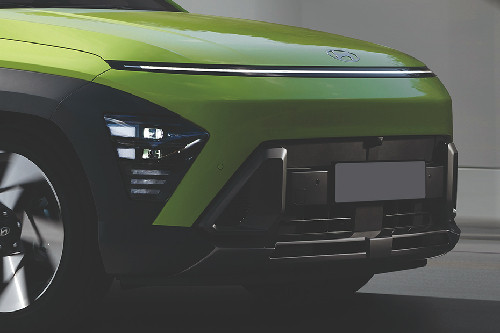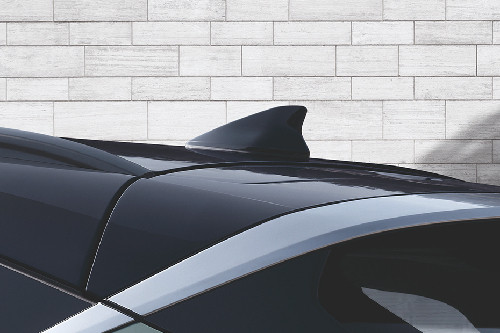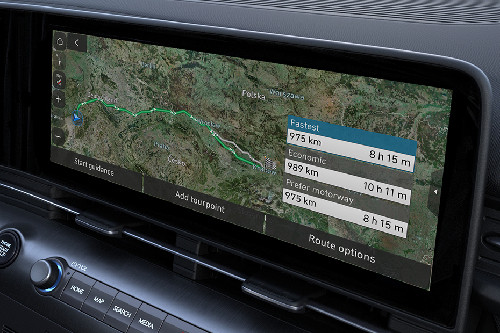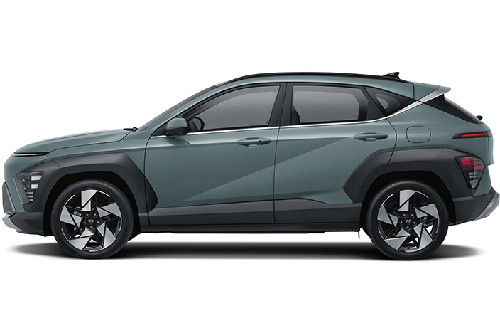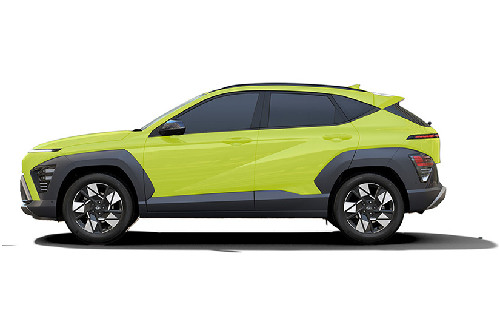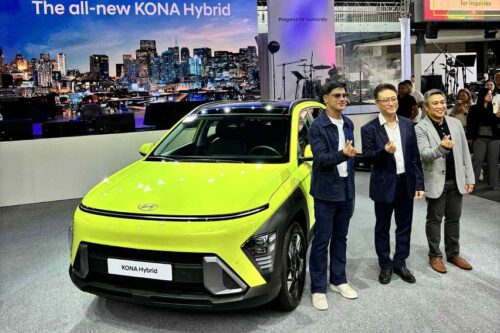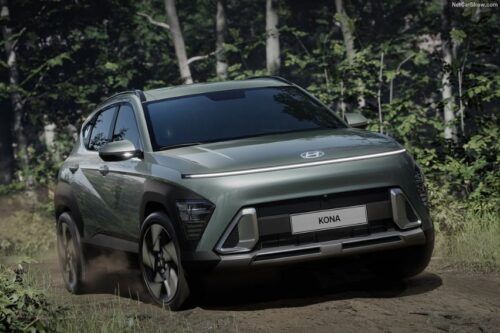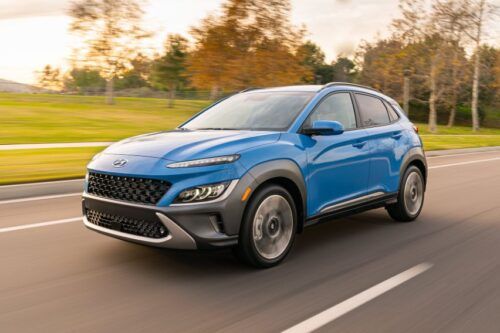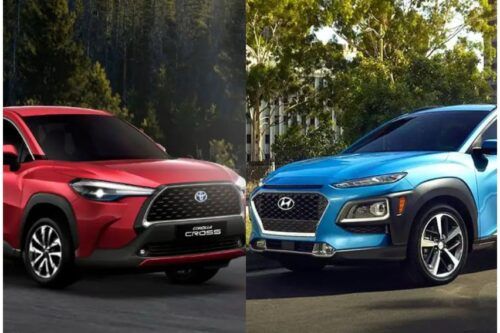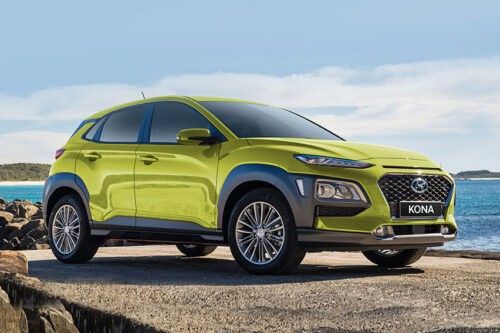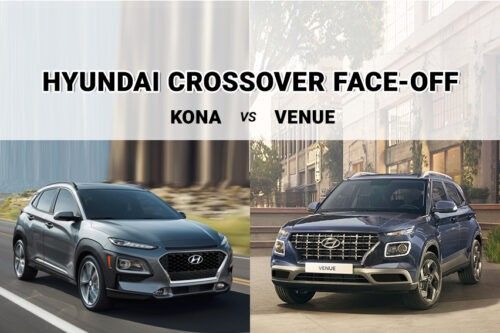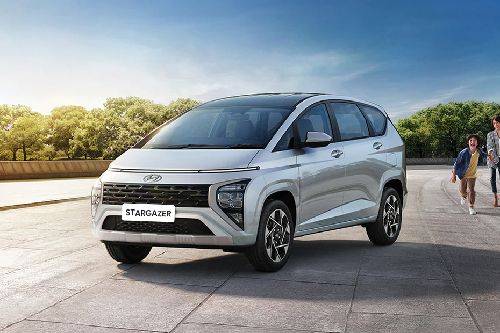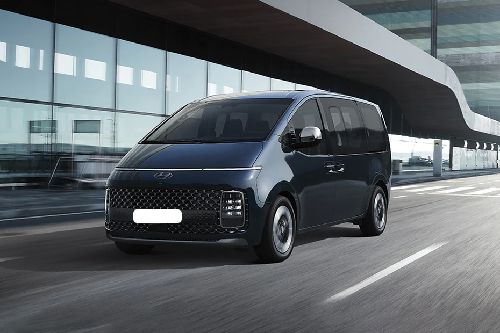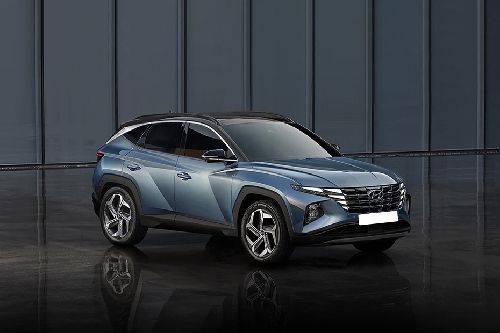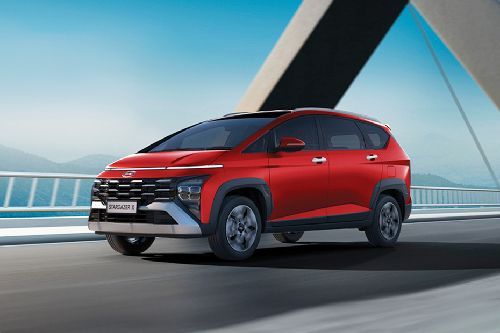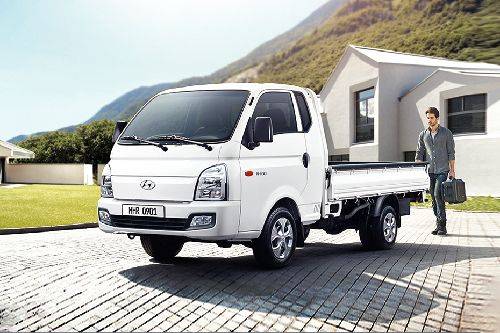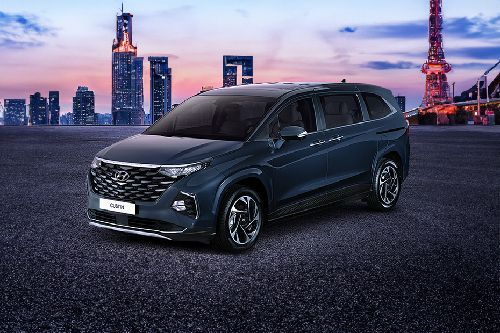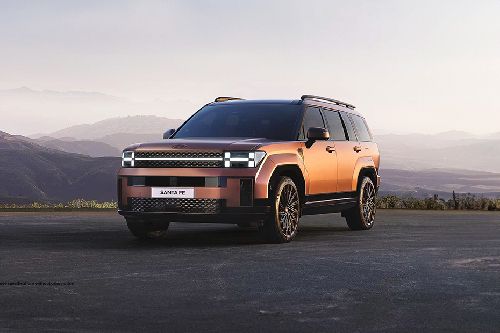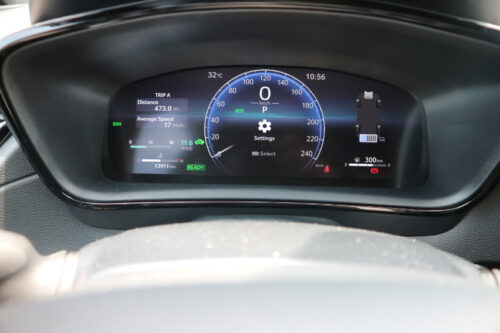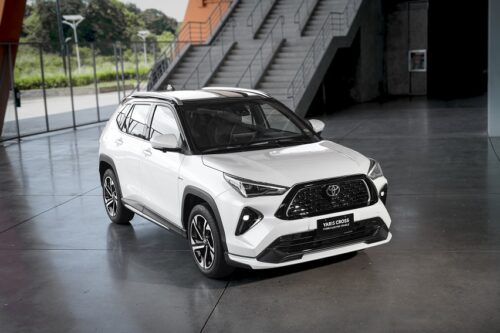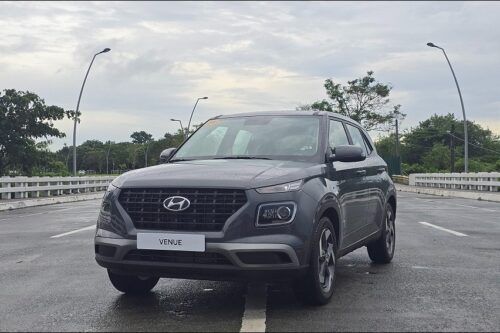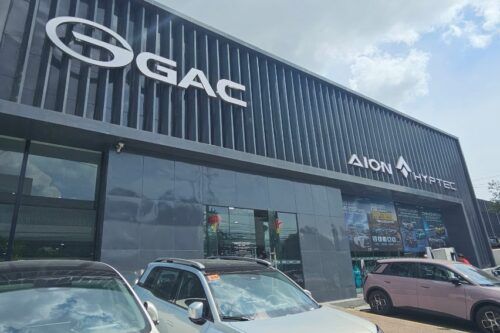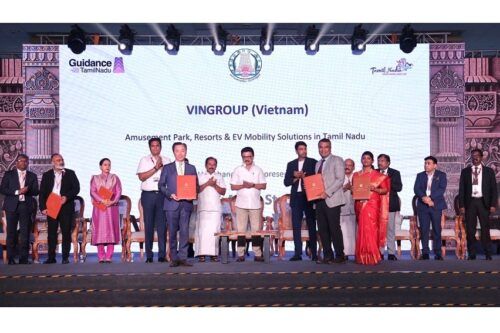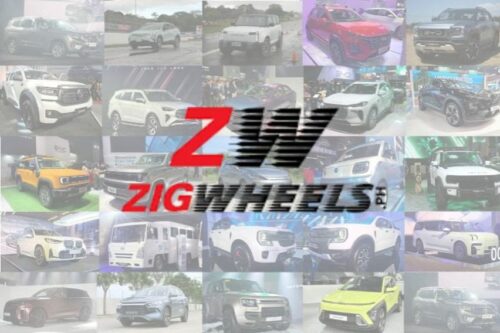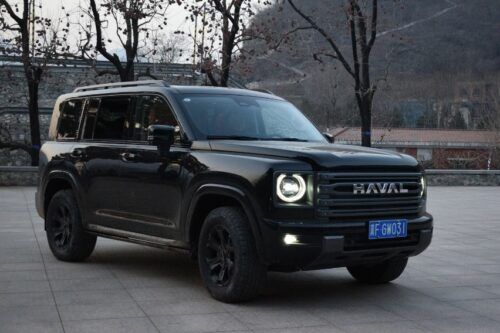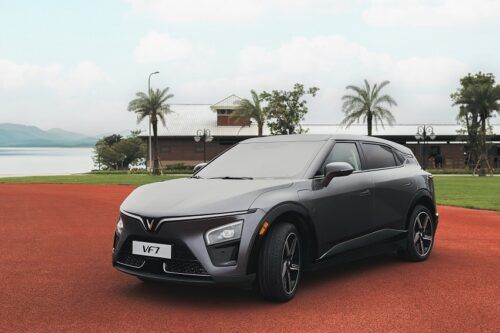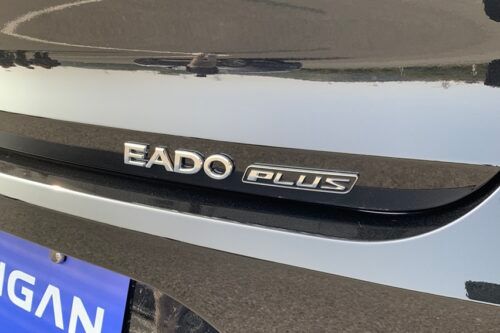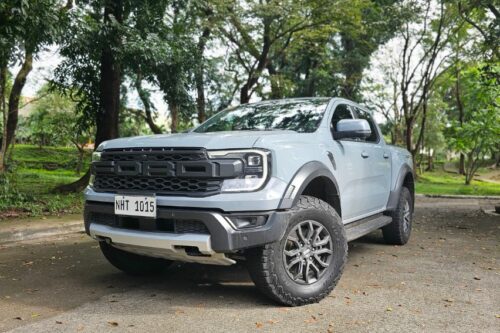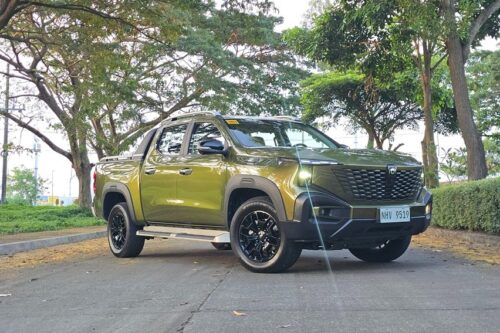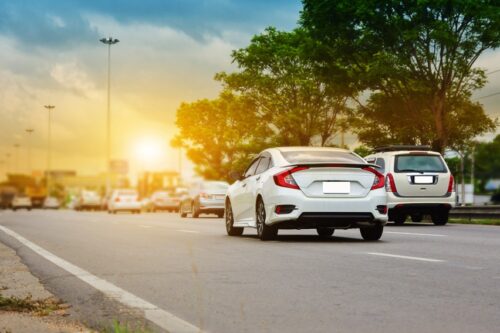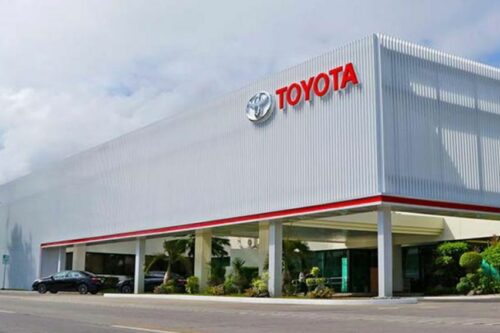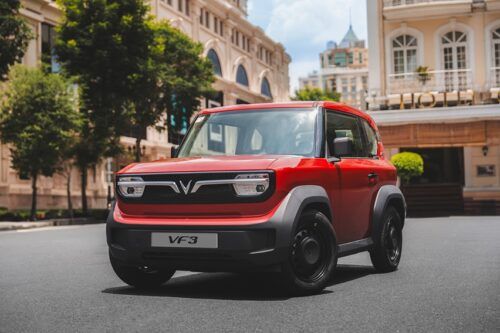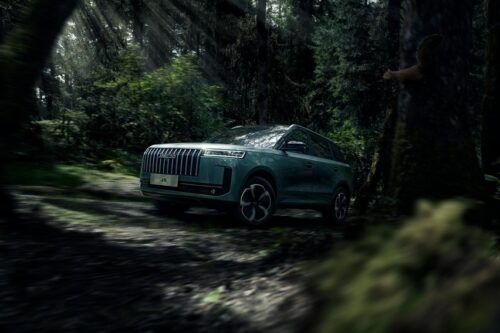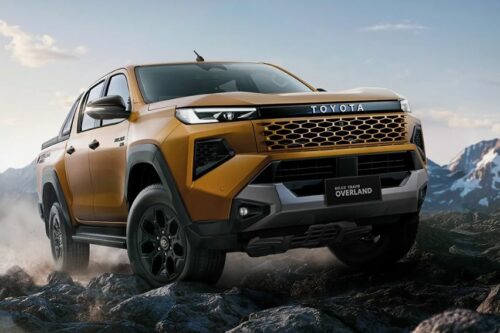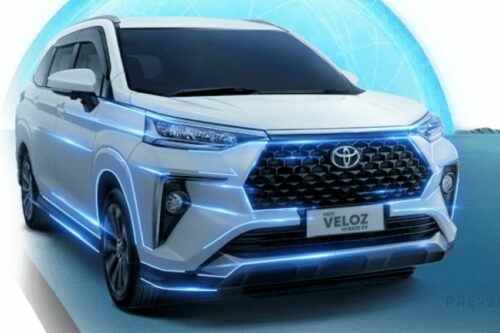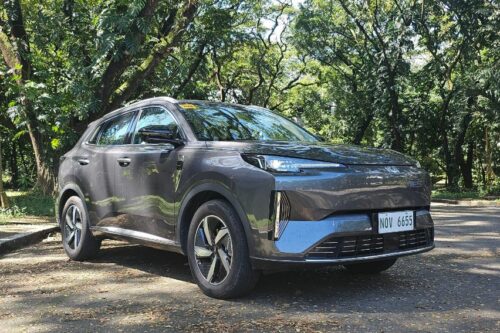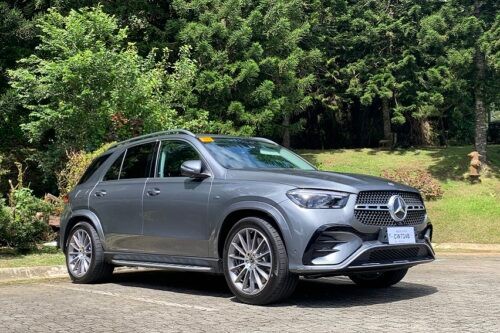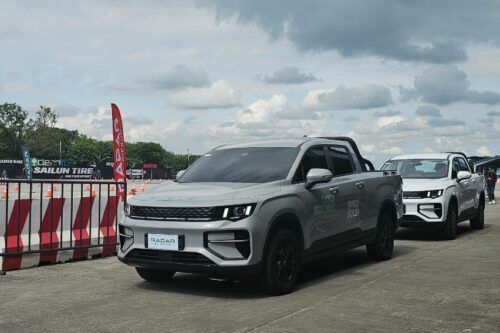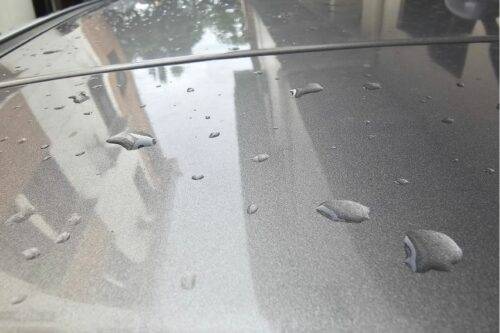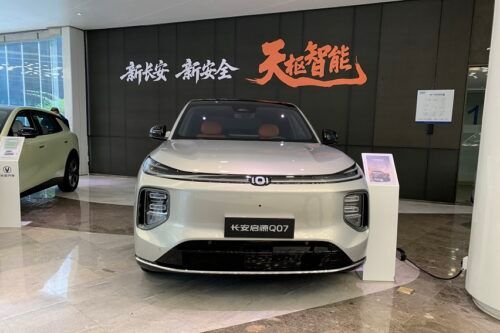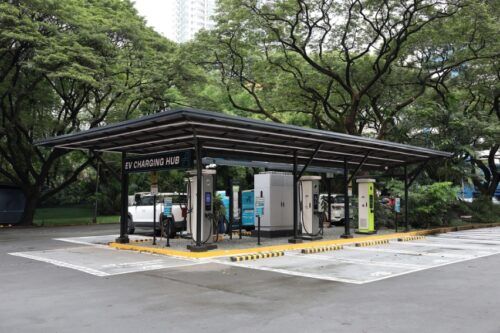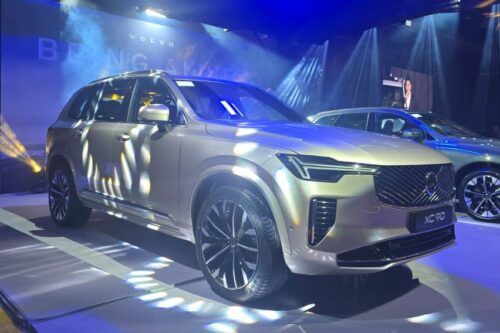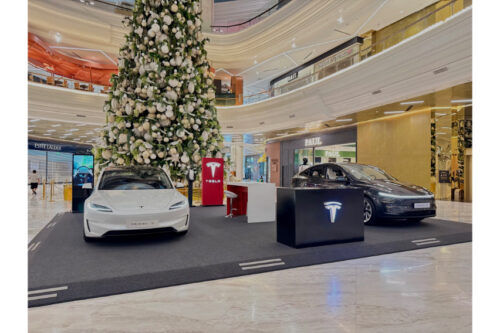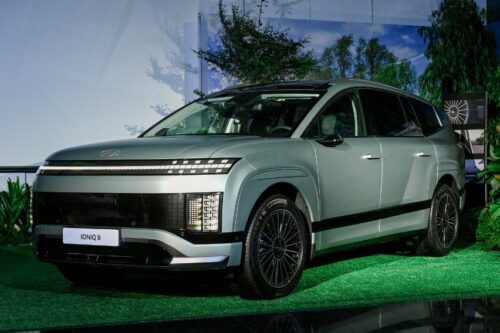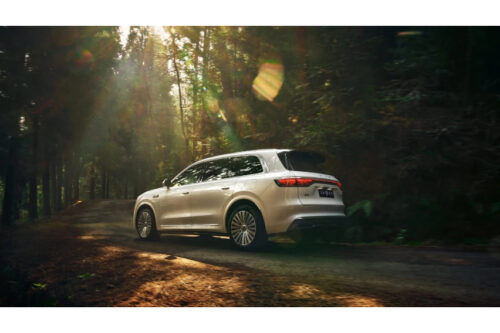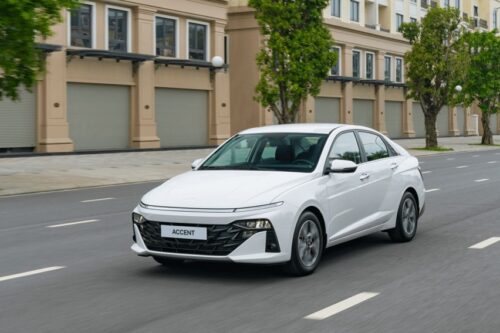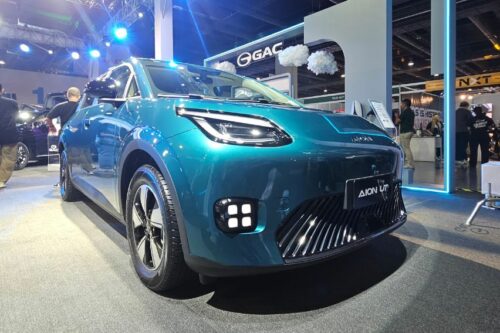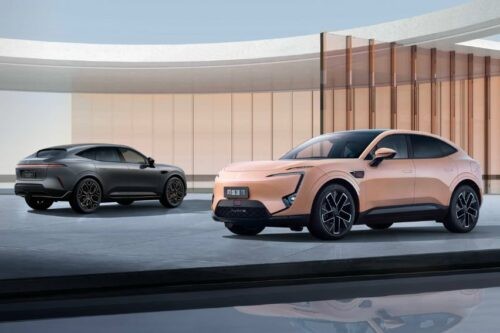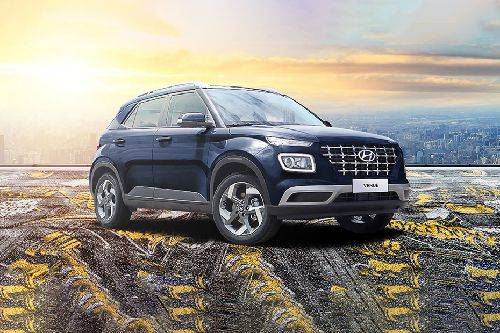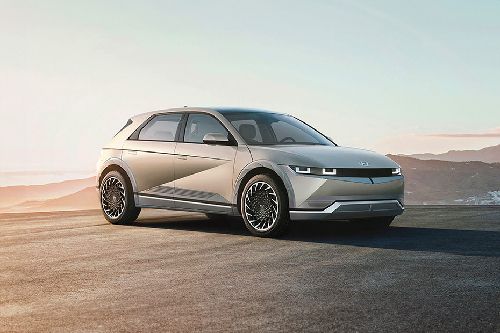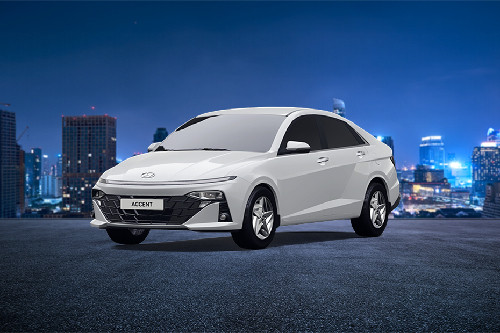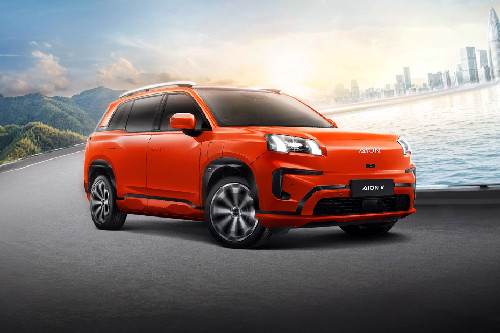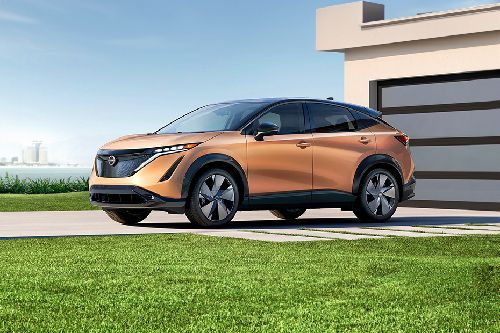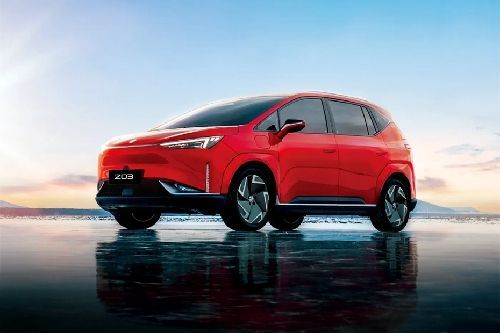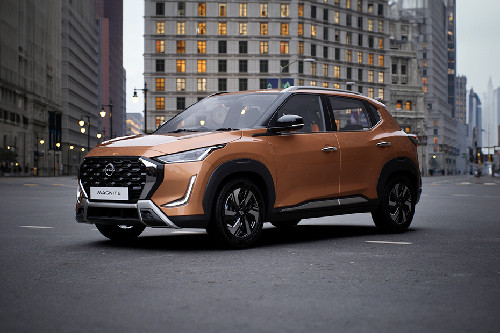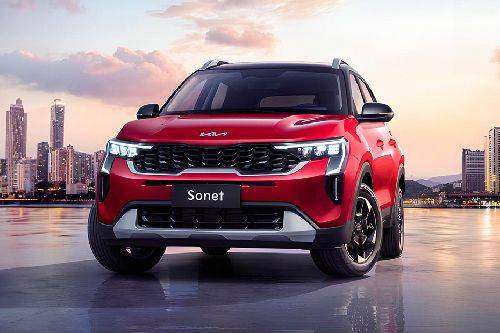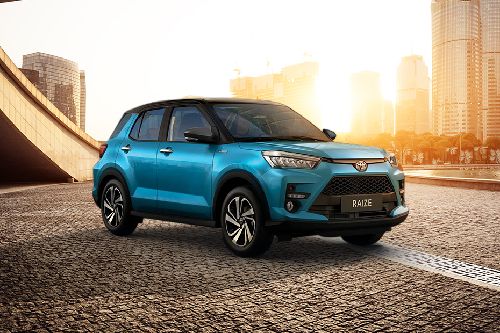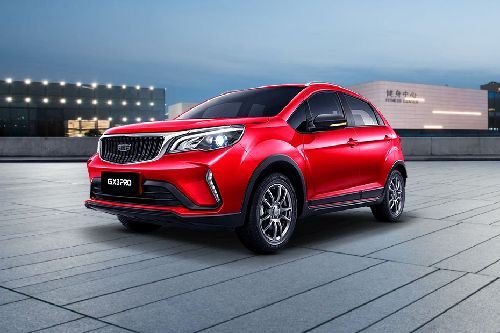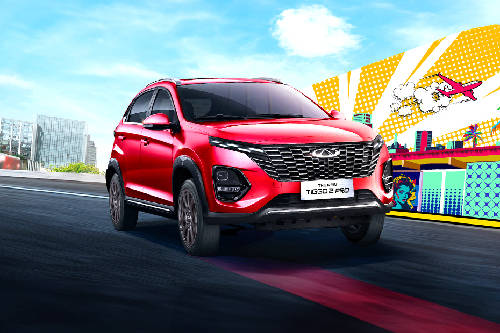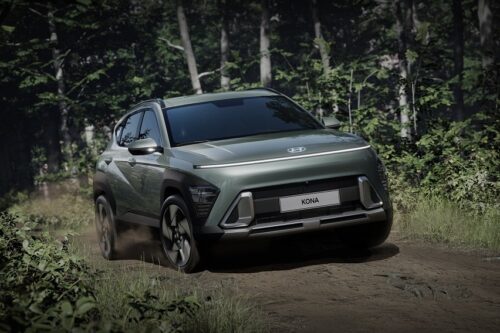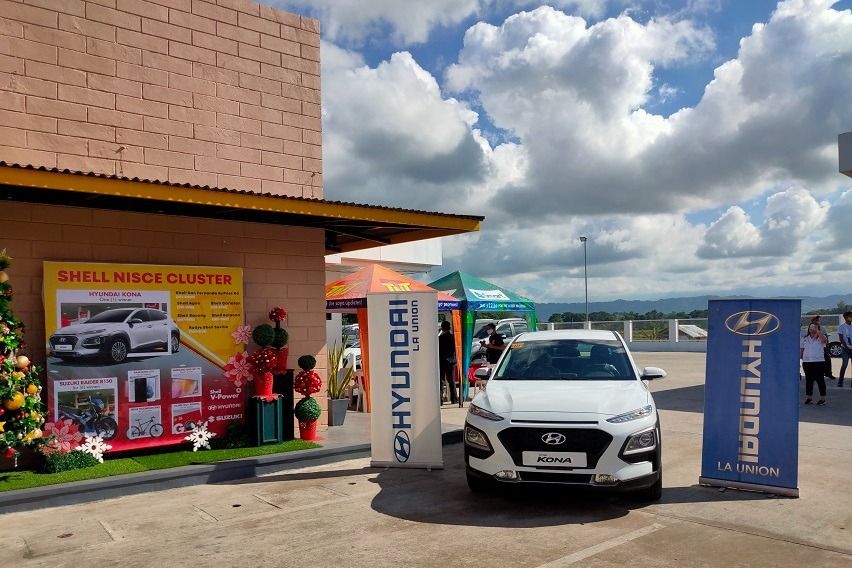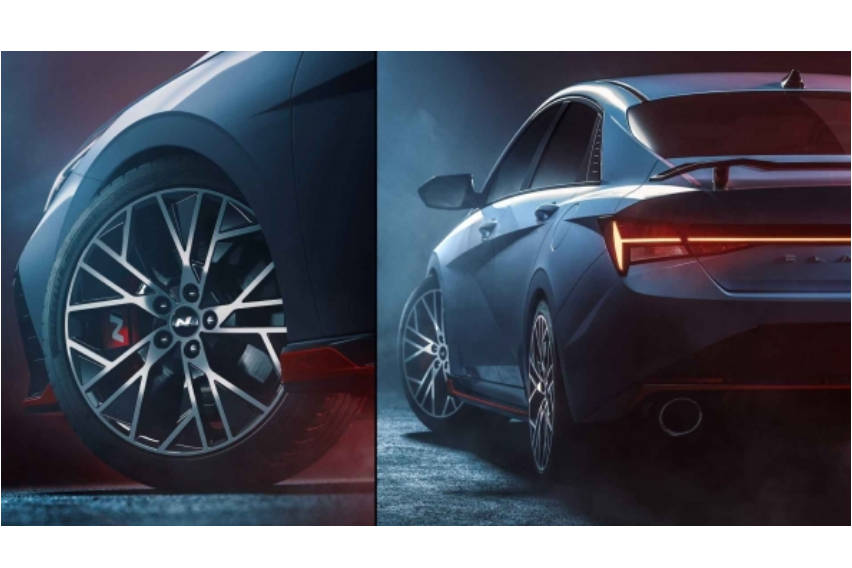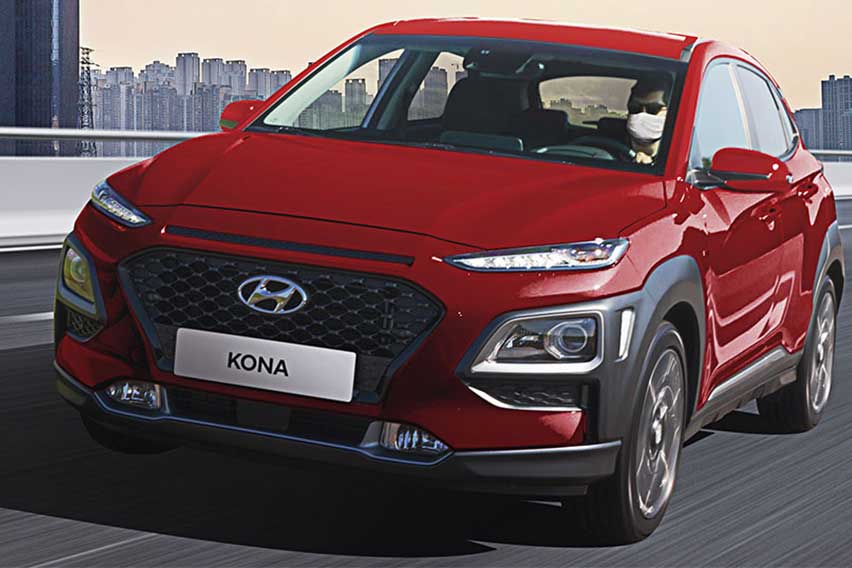EV of the Week: Hyundai Kona Electric
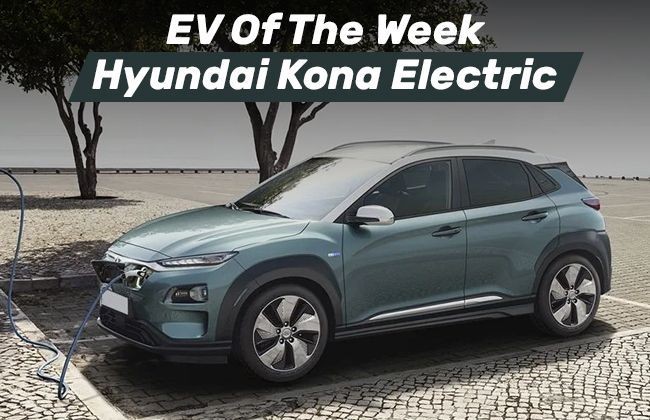
Last week, we featured Tesla Model S – a five-seat liftback sedan and the most popular electric car from Tesla. This week, we’re placing the spotlight on Kona Electric, a five-seat subcompact crossover from Hyundai.
Hyundai Kona EV is the first all-electric SUV in the Philippines. Before its local debut, it had been making headlines in the west, bagging one award after another. It was named “North American Utility Vehicle of the Year” at the North American International Auto Show last January 2019, and “Best Subcompact SUV for the Money” by the U.S. News and World Report. As if that isn’t enough, it also earned a place in the 2019 Car and Driver Editors’ Choice Awards.
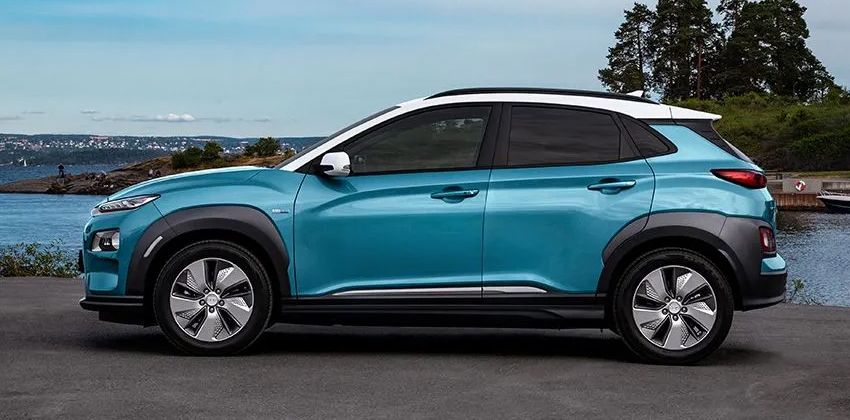
Is the Hyundai Kona any good?
Absolutely! What we love most about Hyundai Kona Electric is its quick-charging feature. With the right power source, it can reach 80% battery level in less than an hour.
Regular charging at home isn’t as fast, but fast enough to let you charge it overnight when you’re sleeping. The 64 kWh battery can reach full capacity in 9 hours and 35 minutes.
Another great feature of Kona EV is its range. A single charge can give you 482 km. Compared to the Nissan Leaf which takes 12 to 15 hours to charge (while only giving you a measly 311 km), Hyundai’s electric car can take you further for less charging time.
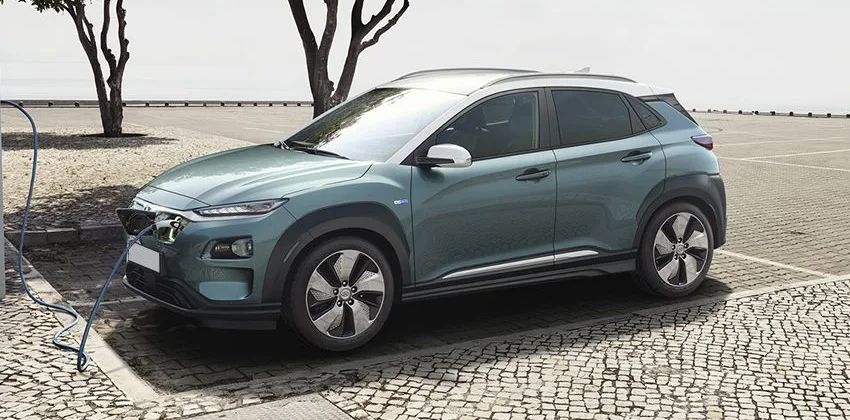
Exterior
Anyone who’s ever owned (or at least seen) a Hyundai will find it looking rather familiar. That’s because it follows the ‘fluidic’ design language of modern Hyundai vehicles. The concept combines nature’s fluidity with precise craftsmanship. It makes the electrified Kona look dynamic, but also robust and capable for its class.
Furthermore, Kona EV borrows the form of its non-electric sibling. It has the same polarized look, thanks to the wraparound cladding on the vehicle’s underside. Both models also have their lights interchanged – with turn signals sitting high on the bonnet and the headlights set low on the bumper. It even has the same down-sloping roof and black trim on the C-pillar; a small but significant detail that makes it look like a shark’s fin, just as Hyundai had intended.
In spite of its familiarity, Kona Electric does have some unique exterior features. The most obvious of which is the closed front grill. A chrome garnish with Hyundai’s emblem now elegantly frames the nose and turn signals. Also new on the model are the 17-inch aerodynamic wheels and a rear bumper that resembles a shark’s gills.
If the shark had wheels, it would be the Hyundai Kona EV.
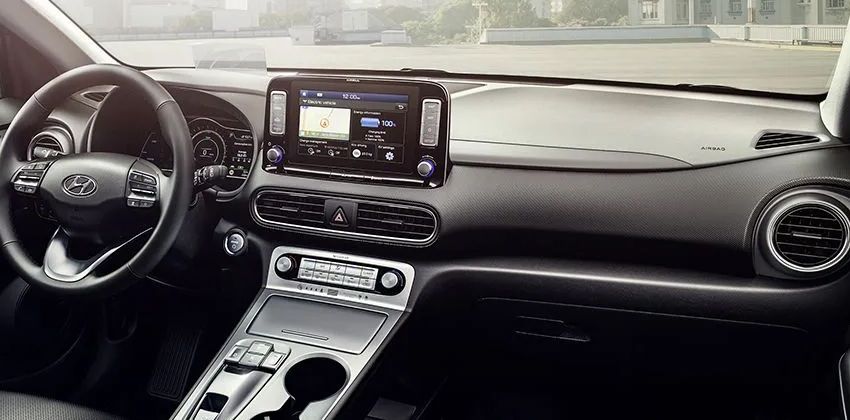
Interior
Inside, Kona Electric looks well put together. Its seats are covered in fabric upholstery as a standard, with the option to upgrade to leather. The dashboard has a nice layout with easy-to-reach buttons, though some might find them too clunky for a futuristic car.
Once you see the 7-inch display, you would forgive Kona EV for having analog switches for almost anything – from climate control to audio adjustments. The infotainment system supports Android Auto and Apple CarPlay, and is paired with 6-speakers for a richer experience.
Overall, it isn’t that different from the gas-powered Kona. But perhaps it is too similar that it also has the same flaws. For instance, while there is enough room to fit a small family, the rear seats can feel cramped even for average-sized adults. Only front seats – including the driver’s – get to have ample space.
Speaking of space, your luggage has better chances of finding it in the trunk than your passengers on the rear. Hyundai Kona Electric can carry 373 liters by default. Impressive, really, considering it’s a subcompact crossover.
Battery and Performance
The Philippine-spec Hyundai Kona EV has a 64 kWh lithium-ion battery that can take you for a 482 km ride on a single charge.
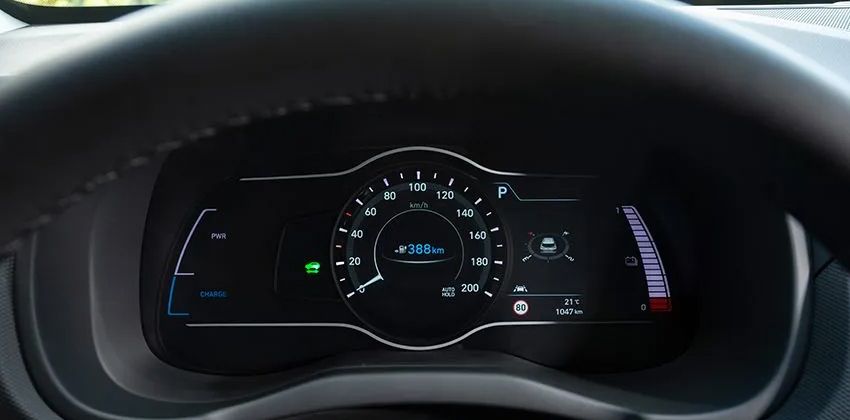
Is the Hyundai Kona EV AWD?
No. The electrified Kona doesn’t support all-wheel drive like the Tesla Model S. Instead, it is powered by a 150 kW electric motor with front-wheel drive. It can take you from 0 to 100 kmph in just 7.6 seconds, reach maximum speeds of 167 kmph, and provide 394 Nm of torque.
How much electricity does Hyundai Kona consume?
Weather and road conditions can affect the electrical consumption of Kona EV. On average, it consumes 13.9 kWh every 100 km.
|
Driving Conditions |
Hyundai Kona Real Energy Consumption |
|
Mild weather, city driving |
10.8 kWh per 100 km |
|
Mild weather, highway driving |
17.5 kWh per 100 km |
How long does it take to charge a Hyundai Kona?
Kona Electric can reach 80% charge within 54 minutes if plugged to a 100 kW power outlet. Under normal charging conditions (7.2 kW) it takes 9 hours and 35 minutes to fully charge.
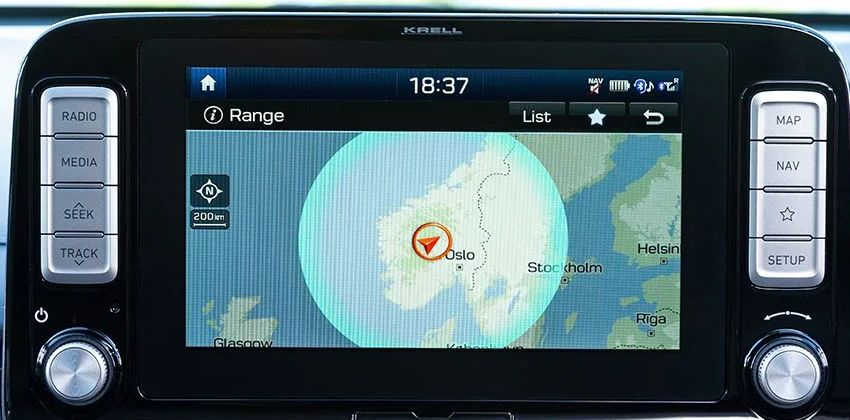
Safety
According to Hyundai Philippines, Kona EV is equipped with the following safety features:
- Six (6) airbags – including the front, side, and curtain
- Anti-lock braking system
- Electronic stability control
- Hill-start assist control
- Electronic parking brake
- Keyless entry with push-start button
How much will Hyundai Kona EV cost?
Kona Electric has a starting price of Php 2,368,000.
Hyundai Kona EV is no powerhouse, but it’s a capable SUV with a well thought out design and exceptional range. Compared to most electric cars, it’s a “greener” option that can take you further on a single charge.
Sell your car at the best price
 Verified and genuine buyers
Verified and genuine buyers
-
Explore Hyundai Kona
Hyundai Kona Related Stories
- News
- Featured Stories
Hyundai Car Models
Don't Miss
Trending & Fresh Updates
- Latest
- Popular
You might also be interested in
- News
- Featured Stories
Hyundai Featured Cars
- Latest
- Upcoming
- Popular
Latest Hyundai Kona Car Videos on Zigwheels

Compare & Recommended

|
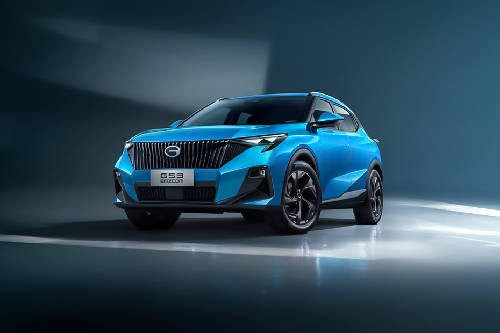
|
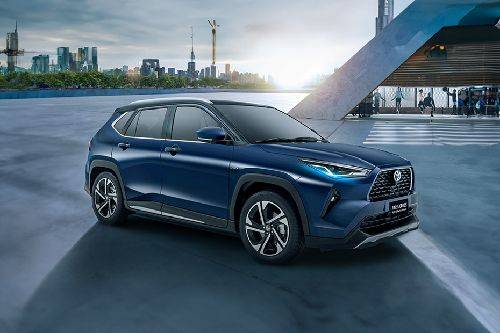
|
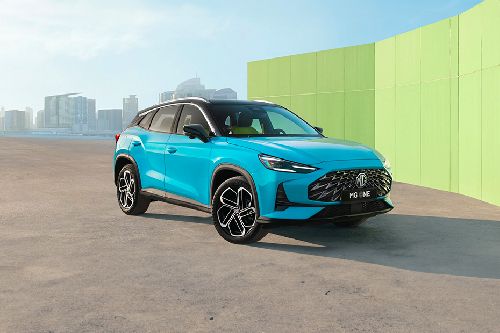
|
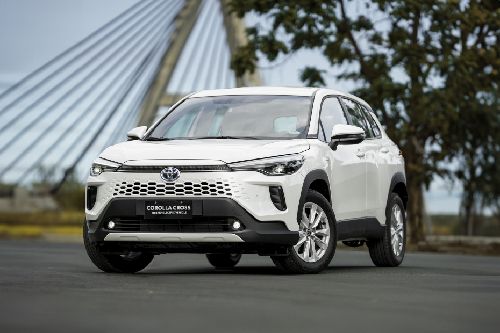
|
|
Ground Clearance
170 mm
|
190 mm
|
212 mm
|
2017 kg
|
161 mm
|
|
Seating
5
|
5
|
5
|
5
|
5
|
|
Fuel Type
Gasoline
|
Gasoline
|
Gasoline
|
Gasoline
|
Gasoline
|
|
Engine
1580
|
1497
|
1496
|
1499
|
1798
|
|
Power
139
|
174
|
105
|
170
|
97
|
|
Torque
144 Nm
|
270 Nm
|
138 Nm
|
275 Nm
|
142 Nm
|
|
Transmission Type
Dual Clutch
|
Dual Clutch
|
CVT
|
CVT
|
E-CVT
|
|
|
Trending Crossover
- Latest
- Upcoming
- Popular
Hyundai Kona Car Articles From Carmudi
- journal

